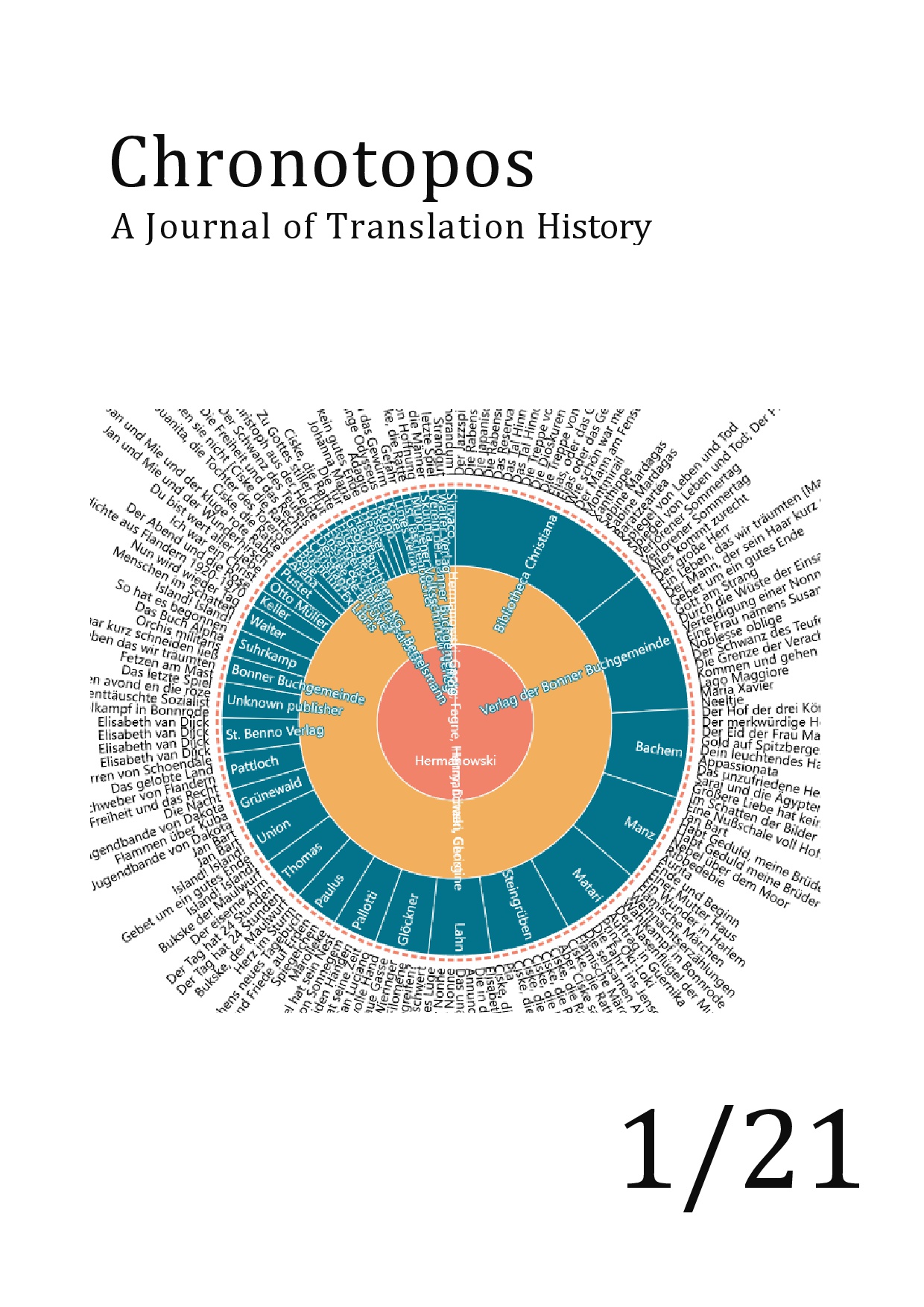Domesticating the Islamic in/of the Middle East
Theo-Ego-Dynamics of Metropolitan Translation and the Geo-Body Politics of Paratranslation
DOI:
https://doi.org/10.25365/cts-2021-3-1-5Keywords:
Paratext, Paratranslation, Satellite piety, Marginal translation, metropolitan translation, epistemic disobedienceAbstract
This paper tackles the problematics of domesticating the Islamic identity-strand of the Arab Middle East in metropolitan translation in post-Arab Spring Egypt. The researcher particularly engages with the changing politics of cultural translation (from Arabic into English) and their ramification with respect to the changing parameters of both the top-level process of cultural representation of the non-Western Other, and the production conditions enabling the transposition of Ibrahim Essa’s مولانا [Maulana] (Essa 2012) into its English translation The Televangelist (2016) by the Journalist-turned literary translator, Jonathan Wright. Written by the Egyptian journalist-writer, Ibrahim Essa, the novel signals the journalistic entry into Arabic literary production and patronage nuanced by the changing cultural politics of the post-revolutionary context. The novel fictively dramatizes the Egyptian Muslim preacher movement—what has been academically codified in terms of politics of piety and ‘satellite piety’ (Mahmood 2005; Abou Bakr 2013) – and the movement’s enmeshment in the new media technology, power-politics, and the changing political and social identity of contemporary Egypt. The English translation The Televangelist (2016) augurs a similar turn in the production and promotion of Arabic literature in translation marked by the journalistic identity of the translator and the new American University of Cairo Press imprint (AUCP), Hoopoe Fiction (2016), through which the translation (debut production) is launched and promoted. The research aims to address the question of the political impact of carving a niche market for a transfigured cultural politics for the Arab Middle East through the new AUC imprint, Hoopoe Fiction, and its implication for both the politically induced cultural branding of the New Middle East and the interfaith agenda of global governance. This is done through instrumentalizing 'translation from the margin' and 'marginal translation' (Yuste Frías 2012, 2015) to enable the decolonizing of Euro-centric parameters of translation studies and thence the decoding of the political instrumentalization of translation geo-historical location in the global matrix of power and forthcoming imperial designs.
Downloads
Published
How to Cite
Issue
Section
License
Copyright (c) 2021 Riham Debian

This work is licensed under a Creative Commons Attribution-NonCommercial 4.0 International License.

licence: CC BY-NC 4.0


